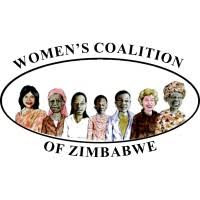
A DAMNING new report prepared by the Women’s Coalition of Zimbabwe (WCoZ) has revealed the struggles women with disabilities face such as systemic exclusion across education, healthcare, employment and governance.
The report, launched in Bulawayo and titled State of Women, criticises Zimbabwe’s sluggish implementation of the National Disability Policy, citing lack of operational frameworks and inaccessible infrastructure as key barriers.
According to the report, representation in leadership, policymaking, and public discourse leads to exclusion from decisions affecting their lives.
“Women with disabilities in Zimbabwe face significant barriers in education, employment, healthcare and personal safety,” the report read.
“Workplace discrimination and lack of reasonable accommodation prevent many from securing employment.
“Women with disabilities also face barriers to sexual and reproductive health services, including stigma, inaccessible facilities and lack of inclusive information.”
WCoZ chairperson Muchanyara Mukamuri stressed the report’s role in documenting intersecting crises:
“Poverty, economic disparities, and climate change disproportionately burden women with disabilities,” she said.
- Revisiting Majaivana’s last show… ‘We made huge losses’
- Edutainment mix: The nexus of music and cultural identity
- ChiTown acting mayor blocks election
- Promoter Mdu 3D defends foreigners 30 minute set
Keep Reading
While the findings align with the Women’s Affairs ministry gender equality goals, ministry official Sibongile Khumalo noted that 70% of women live below the poverty line.
“Collaboration with the private sector is vital to provide skills training, financing and entrepreneurial support,” she urged.
In a related matter, people living with disabilities have urged the government to ensure their inclusion in public procurement processes during recent public hearings on the Public Procurement and Disposal of Public Assets Amendment Bill in Bulawayo.
The Bill aims to improve transparency, efficiency and governance in government spending while boosting employment and economic growth.
However, Tshepang Nare, representing Beyond Measure for People with Disabilities, stressed that procurement policies must adopt a universal design to ensure accessibility for all, regardless of disability, age or gender.
“The law must explicitly prohibit discrimination and enforce penalties for violations,” Nare said.
She also called for an evaluation criteria that assess bidders’ commitment to inclusivity, including employment of women, youth and persons with disabilities.









